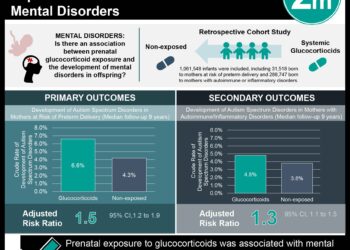Wellness Check: Mental Health
Musculoskeletal injury negatively impacts mental health in adult athletes
1. In this systematic review, musculoskeletal injury (MSK) in adult athletes was associated with worsened scores across multiple domains of mental health.
2. Furthermore, involuntary retirement from sport due to MSK injury was commonly associated with worsened mental health.
Evidence Rating Level: 1 (Excellent)
Mental health disorders such as anxiety and depression may be prevalent in athletic populations due to an intertwining of their identity with their sport. Studies have shown that injured athletes tend to experience poorer mental health. However, no systematic review to date has examined the impact of musculoskeletal injury (MSK) on mental health outcomes. As a result, the objective of the present study was to synthesize the effects of MSK injuries on the mental wellbeing of adult athletes across several sports.
Of 1071 identified records, 31 (n=19 observational) studies were included from 2 databases (PubMed and PsycNet). Studies were included if they evaluated the impact of MSK injury on mental health in adult athletes. Studies were excluded if they focused on traumatic brain injury (TBI) or concussions, included pediatric populations, or did not investigate mental health outcomes after injury. The review was performed using PRISMA guidelines. The primary outcome was the impact of MSK injury on mental health outcomes.
The results demonstrated that MSK injury was associated with several deleterious mental health outcomes, including increased distress, disordered eating, substance abuse, and worsened mental health scores. Furthermore, several studies found that involuntary retirement from sport due to MSK injury was associated with worsened mental health outcomes, including increased anxiety, depression, feelings of loneliness, and loss of purpose. However, the review was limited by the fact that most of the studies focused on collegiate and professional athletes, limiting the generalizability of these findings to amateur athletes. Nonetheless, the present study added a greater understanding to the impact that MSK injury may have on mental health outcomes in adult athletes.
Screen time may be associated with worsened mental health in adolescents
1. In this systematic review, increased screen time was associated with worsened mental health outcomes in adolescents.
2. However, the purpose of the screen use was important to consider. Activities such as social media were negatively associated with mental health, while non-recreational activities, such as online study, were not.
Evidence Rating Level: 1 (Excellent)
Adolescents have high levels of both mental health complaints and screen time. However, research on the effects of screen time on adolescent mental health has generated conflicting results, so the association between the two remains unclear. As a result, the objective of the present study was to review and quantify the current evidence on the effect that screen exposure may have on adolescent mental health.
Of 1309 identified records, 50 studies were included from various databases from 2011 to 2023. Studies were included if they directly assessed associations between screen time and mental health in adolescents, used validated measures to assess mental health outcomes, and were published in English. Studies were excluded if participants had problematic internet use, pre-existing mental health disorders, or used screen-based devices for functional reasons. The review was performed using PRISMA guidelines. Study quality was assessed using the Newcastle-Ottawa Scale. The primary outcome was the impact of screen time on various mental health parameters.
The results demonstrated that overall, screen time was associated with worsened mental health outcomes in adolescents, although the effect size varied. The most commonly used device among adolescents was the smartphone, and high screen time on weekdays was associated with worsened wellbeing. However, the purpose of the screen use was an important factor to consider. While activities like social media negatively impacted mental health, this same association was not seen for non-recreational activities, such as online study. Despite these results, the review was limited by the self-reported nature of the included studies, which may have led to inaccuracies in screen time. Nonetheless, the present study added additional evidence supporting the harmful mental health effects of increased screen time among adolescents.
Conversational agent interventions may be helpful in mental health care
1. In this systematic review and meta-analysis, conversational agent interventions (CAIs) were associated with improvements in several mental health symptoms, such as stress, anxiety, and depression, in the short term.
2. In addition, longer interaction times with the CAIs produced larger effect sizes with respect to mental health outcomes.
Evidence Rating Level: 1 (Excellent)
Conversational agent interventions (CAIs) are a form of artificial intelligence developed to meet the demand for more mental health services. Previous studies investigating the effectiveness of CAIs have yielded mixed results. Thus, the potential effectiveness of CAIs in addressing the global burden of mental health is not well understood. As a result, the objective of the present study was to review the utility of CAIs in addressing mental health problems.
Of 6900 identified records, 32 (n=6089 participants) studies were included from various databases from database inception to May 2022. Studies were included if they were randomized controlled trials that compared the effects of CAIs versus controls on mental health outcomes. Studies were excluded if they focused on physical health or user experience, rather than mental health outcomes. The review was performed using PRISMA guidelines. Quality assessment was performed using the Cochrane Collaboration tool. The primary outcome was the impact of CAIs on various mental health outcomes (e.g., symptoms of depression, anxiety, stress, psychosomatic symptoms, etc.).
The results demonstrated that, compared to controls, CAIs were superior in improving symptoms of depression, generalized anxiety, stress, negative affect, and psychosomatic disease. In addition, longer interaction times with CAIs produced larger pooled effect sizes. Despite these findings, the study was limited by the fact that different studies used different measurement tools for the same mental health outcomes, which may have affected the magnitude of the results. Nonetheless, the present study added important evidence to suggest that CAIs may have clinical utility in improving mental health outcomes.
Telemedicine interventions may improve mental health outcomes in pregnant women and new mothers
1. In this systematic review, most studies found that pregnant women and new mothers who received telemedicine interventions showed a significant improvement in many mental health outcomes.
2. However, these interventions did not demonstrate a significant improvement in symptoms of anxiety.
Evidence Rating Level: 1 (Excellent)
Affective disorders during pregnancy may have deleterious consequences, not only for the mother, but also for the fetus, making treatment imperative. Telemedicine may offer a solution due to its ease of access, especially for those who may have difficulties with transportation. Currently, few systematic reviews have assessed the efficacy of telemedicine interventions in addressing mental health concerns in this population. As a result, the objective of the present study was to review the literature on telemedicine interventions in pregnant women and new mothers and their effectiveness in addressing mental health outcomes.
Of 4036 identified records, 44 studies were included from various databases from 2007-2020. Studies were included if they were randomized controlled trials that evaluated the use of telemedicine in addressing mental health related outcomes in pregnant women and/or new mothers. Studies were excluded if they were printed in languages other than English or German. The review was performed using PRISMA guidelines. Risk of bias was assessed using the revised Cochrane risk-of-bias tool for randomized trials (RoB 2). The primary outcome was the impact of telemedicine interventions on mental health outcomes.
The results found that most studies demonstrated improvements in mental health outcomes, such as depression and stress, for pregnant women/new mothers who received a telemedicine intervention. In particular, Cognitive Behavioral Therapy delivered via telemedicine was helpful in alleviating symptoms of depression and stress. However, studies have noted that generally telemedicine interventions were less effective at improving symptoms of anxiety. Despite these results, the review was limited by the heterogeneity of the telemedicine interventions used by the included studies, which may have affected the comparability of the results. Nonetheless, the present study presented evidence to support the use of telemedicine interventions to improve mental health outcomes in pregnant women and new mothers.
Image: PD
©2023 2 Minute Medicine, Inc. All rights reserved. No works may be reproduced without expressed written consent from 2 Minute Medicine, Inc. Inquire about licensing here. No article should be construed as medical advice and is not intended as such by the authors or by 2 Minute Medicine, Inc.






